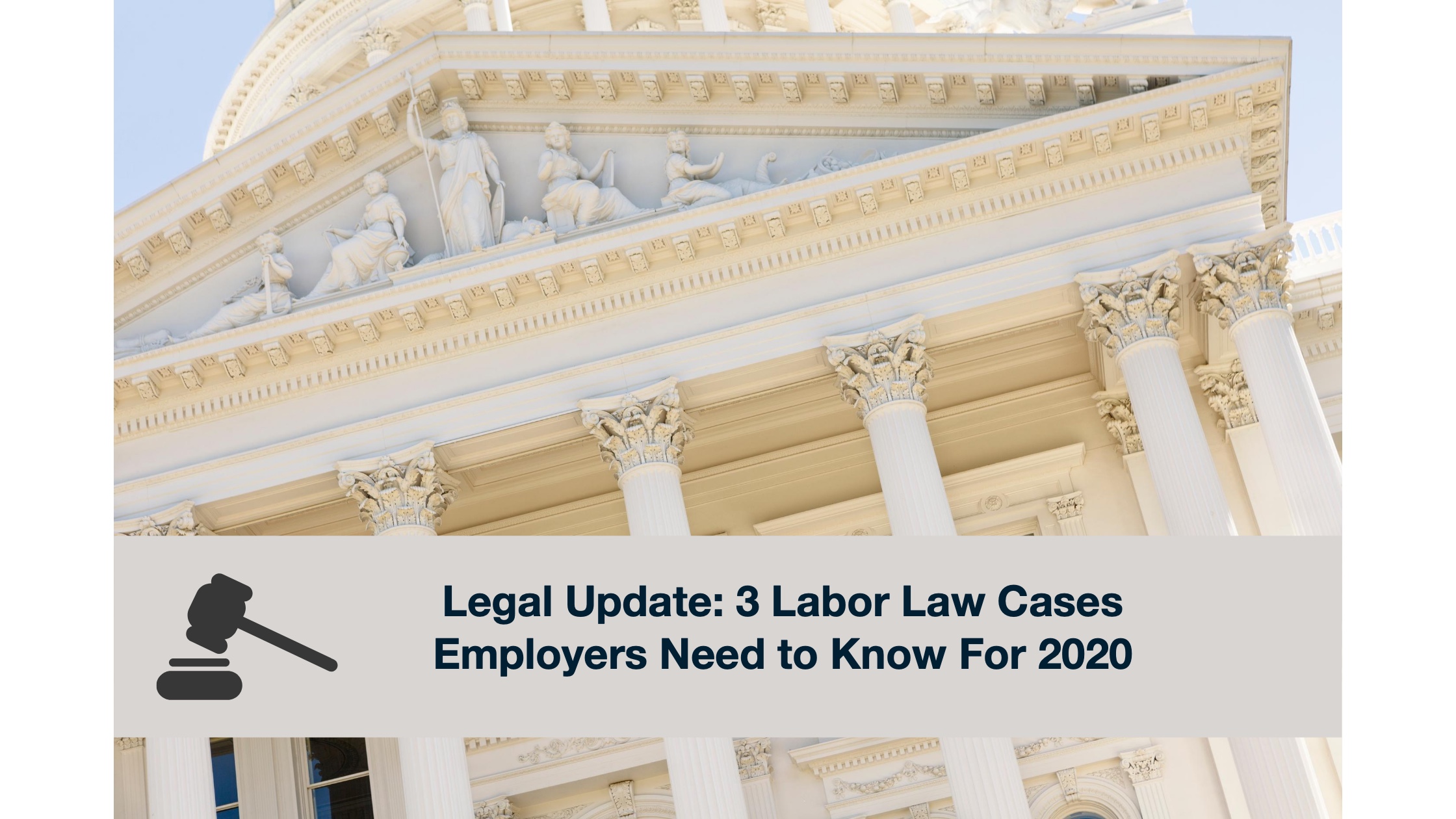Three Labor Law Cases Employers Need to Know

The courts and legislature have been busy making changes to the workplace during the first three-quarters of the year. We all realize the pandemic forced many employers into unfamiliar workforce situations simply to keep their operations running. Now lawsuits are following.
Our friends at Barsamian & Moody, summarizes three recent labor law cases involving remote workforce and terminations that many employers might encounter.
Oliver v. Konica Minolta Business Solutions
Up first is a case called Oliver v. Konica Minolta Business Solutions, where the court looked at whether commute time and mileage are compensable. Service technicians were required to drive their personal vehicles, which contained the employer’s tools and parts, to customer sites to make repairs to copiers and other machines. The service technicians did not report to an office for work, but usually drove from home to the first customer location of the day and, at the end of the day, from the last customer location to home. Wage Order No. 4 defines hours worked as “the time during which an employee is subject to the control of an employer, and includes all the time the employee is suffered or permitted to work, whether or not required to do so.” (Cal. Code Regs., tit. 8, § 11040, subd. 2(K).) Labor Code section 2802 requires an employer to indemnify an employee “for all necessary expenditures or losses incurred by the employee in direct consequence of the discharge of his or her duties.”
Plaintiff’s sought wages for (1) time spent commuting to the first work location of the day and commuting home from the last work location and (2) reimbursement for mileage incurred during those commutes. The trial court determined that plaintiffs’ commute time was not compensable as “hours worked”. On appeal, court looked at whether carrying tools and parts in a service technician’s personal vehicle during the commute was optional, and if not, whether the requirement subjected them to the control of the employer. It decided that there was not enough information to make the determination so the case was sent back down to the trial court for further litigation on the issue.
Labor Code section 2802
Another issue related to Labor Code section 2802 comes in the form of reimbursing employees for expenses related to working remotely from home. The courts have already established that employers must reimburse employees for business use of a personal cell phone, but in the wake of new remote workers, employers should look at other expenses an employee incurs because of the work performed at home, such as the use of a personal computer and even home internet. There is no standard way to determine how much an employee must be paid, but it must be a “reasonable” amount that covers the cost of the business use.
Anthony v. Trax International
Third, employers should be aware of a recent case concerning an untruthful applicant. In the case of Anthony v. Trax International, an employee sued for disability discrimination after she was terminated. During the lawsuit, the company learned that she did not possess the bachelor’s degree which was required under her contract. She had lied on her application for the job. Under the EEOC’s two-step qualified individual test, an individual who fails to satisfy the job prerequisites cannot be considered “qualified” under the ADA unless she shows that the prerequisite is itself discriminatory. Since the bachelor’s degree was required of everyone working in her position it could not be proven discriminatory and the case was dismissed because the company had no obligation to engage in the interactive process with her.
Compliance Solutions
Implementing OnePoint HCM as your all-in-one workforce management solution can improve your ability to monitor, track and document workforce data. Protect your company from wage and hour issues and litigation by having all your employee data in one place. Leverage advanced rules, configurations and real-time reporting to proactively manage a wide range of issues to keep your organization compliant.
This article was contributed by Faith Driscoll, Esq. with the law firm of Barsamian & Moody. The goal of this article is to provide employers with current labor and employment law information. The contents should neither be interpreted as, nor construed as legal advice or opinion. The reader should consult with a labor law attorney. Barsamian & Moody can be contacted by phone (559) 248-2360 or email laborlaw@theemployerslawfirm.com for individual responses to questions or concerns regarding any given situation.
Subscribe to updates
Get the latest posts delivered to your inbox.